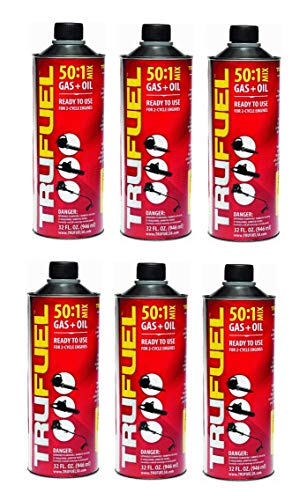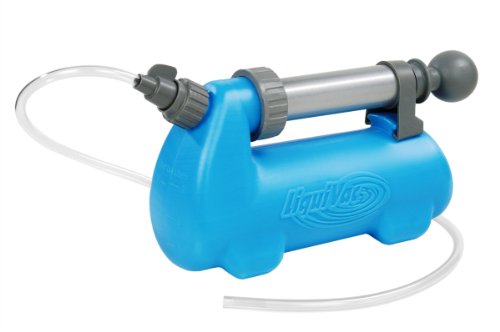You are using an out of date browser. It may not display this or other websites correctly.
You should upgrade or use an alternative browser.
You should upgrade or use an alternative browser.
Ethanol Free gas
- Thread starter larrypac
- Start date

Help Support Arborist Forum:
This site may earn a commission from merchant affiliate
links, including eBay, Amazon, and others.
Premo in 2 strokes is mandatory for pre-ignition, leading up to detonation and more pre-ign. when running air cooled engines Balls Out.This was off a mower I was working on when I had a brief stint as a small engine mechanic. It was like a gel. Not sure if this was from pump gas or something else. Still I only use clear premium in all my small engines.
Ethanol up to 15% is ok except for air moisture. It actually raises octane.(another story for that)
Miscibility of ethanol in water is infinite. (it is in solution) Just check the half full old vodka bottle.
Nearly same as for water in ethanol.
Air moisture is not just water in solution. Air has contaminates, and so does the water in the air.
Gasoline with eth. has limited solubility
So gasohol mix will separate what is not in solution.
This brings chemicals from the gasoline out(sulfur, calcium, mag, man) out of the gasoline as a precipitate.
White/yellow chalks found in carb.
cliff
Premium isn't mandatory in two stroke chainsaws. They have very low compression ratios.Premo in 2 strokes is mandatory for pre-ignition, leading up to detonation and more pre-ign. when running air cooled engines Balls Out.
Ethanol up to 15% is ok except for air moisture. It actually raises octane.(another story for that)
Miscibility of ethanol in water is infinite. (it is in solution) Just check the half full old vodka bottle.
Nearly same as for water in ethanol.
Air moisture is not just water in solution. Air has contaminates, and so does the water in the air.
Gasoline with eth. has limited solubility
So gasohol mix will separate what is not in solution.
This brings chemicals from the gasoline out(sulfur, calcium, mag, man) out of the gasoline as a precipitate.
White/yellow chalks found in carb.
cliff
The other thing is higher octane doesn't prevent pre ignition. It prevents detonation.
No pissing match here, but deto leads to hot chamber leads to pre-ign.Premium isn't mandatory in two stroke chainsaws. They have very low compression ratios.
The other thing is higher octane doesn't prevent pre ignition. It prevents detonation.
Pre-ign. leads to deto also.
True, higher octane ******* deto. but, it also slows burn rate and heat rejection to chamber and spark plug, near TDC.
Typicaly no. Because the portion of the chamber where deto occurs is on the exhaust side at the outer edge where it's hottest. The center near the spark plug tends to run much cooler.No pissing match here, but deto leads to hot chamber leads to pre-ign.
Pre-ign. leads to deto also.
True, higher octane ******* deto. but, it also slows burn rate and heat rejection to chamber and spark plug, near TDC.
Pre ignition is usually caused by plug heat range, mettalic deposits, to much timing advance, or a combination of the those three factors.
Higher octane does not slow burn rate either. Slowing burn rate lowers octane as the faster you can burn the fuel air mixture the less chance you have for detonation to occur. The fastest burning gasolines are pro stock drag fuels, which also have some of the highest octane ratings.
No pissing match, just stating the facts.
Now, deto can lead to pre ignition if you have one or more of the three factors I mentioned above, butbit typicaly doesnt. Once pre ignition haopens you end up with a hole in the center of your piston almost instantly.
I have seen many pistons that failed from deto and several from pre ignition, but known have shown evidence of both phenomenon going on.
All true, except we are mainly speaking of 2 stroke engines.Typicaly no. Because the portion of the chamber where deto occurs is on the exhaust side at the outer edge where it's hottest. The center near the spark plug tends to run much cooler.
Pre ignition is usually caused by plug heat range, mettalic deposits, to much timing advance, or a combination of the those three factors.
Higher octane does not slow burn rate either. Slowing burn rate lowers octane as the faster you can burn the fuel air mixture the less chance you have for detonation to occur. The fastest burning gasolines are pro stock drag fuels, which also have some of the highest octane ratings.
No pissing match, just stating the facts.
Now, deto can lead to pre ignition if you have one or more of the three factors I mentioned above, butbit typicaly doesnt. Once pre ignition haopens you end up with a hole in the center of your piston almost instantly.
I have seen many pistons that failed from deto and several from pre ignition, but known have shown evidence of both phenomenon going on.
No hot exhaust valves to deal with!
c

$27.86 ($27.86 / Count)
Husqvarna 6PK Genuine OEM XP 2-Cycle Oil 2.5 Gallon Mix 6.4oz 593152303
TK Outdoor Parts
The only time I've had any serious damage that I blamed on ethanol was in the carb of a little Yamaha inverter generator. It was clogged with stuff just like that. Because I've been careless about leaving ethanol fuel in all kinds of engines, and this is the only real damage I've experienced (not counting poor running from stale fuel as damage), I put it down to a materials compatibility issue. I'm more careful since seeing that goo.This was off a mower I was working on when I had a brief stint as a small engine mechanic. It was like a gel. Not sure if this was from pump gas or something else. Still I only use clear premium in all my small engines.
There was nothing I said that pertains to four strokes exclusively.All true, except we are mainly speaking of 2 stroke engines.
No hot exhaust valves to deal with!
c
Interesting.. Is there a difference between "burn rate" and "propagation of the flame front"?Higher octane does not slow burn rate either.
According to Google..
The propagation of a flame front is influenced by a number of factors, including the fuel's octane rating, the mixture of combustible species, and the environmental conditions:
- Octane rating
Fuels with a higher octane rating burn more slowly and are better balanced against spontaneous combustion. This means they resist knocking and detonation, which can damage a car engine.
That's poor information on Googles behalf. In fact it's dead wrong.Interesting.. Is there a difference between "burn rate" and "propagation of the flame front"?
According to Google..
The propagation of a flame front is influenced by a number of factors, including the fuel's octane rating, the mixture of combustible species, and the environmental conditions:
- Octane rating
Fuels with a higher octane rating burn more slowly and are better balanced against spontaneous combustion. This means they resist knocking and detonation, which can damage a car engine.
The amount of terrible information on the web regarding this particular subject is astonishing.
Google up Kevin Cameron if you really want to understand it. He is a tech writer for Cycle world and a Chem engineer IIRC.
Similar threads
- Replies
- 36
- Views
- 3K













